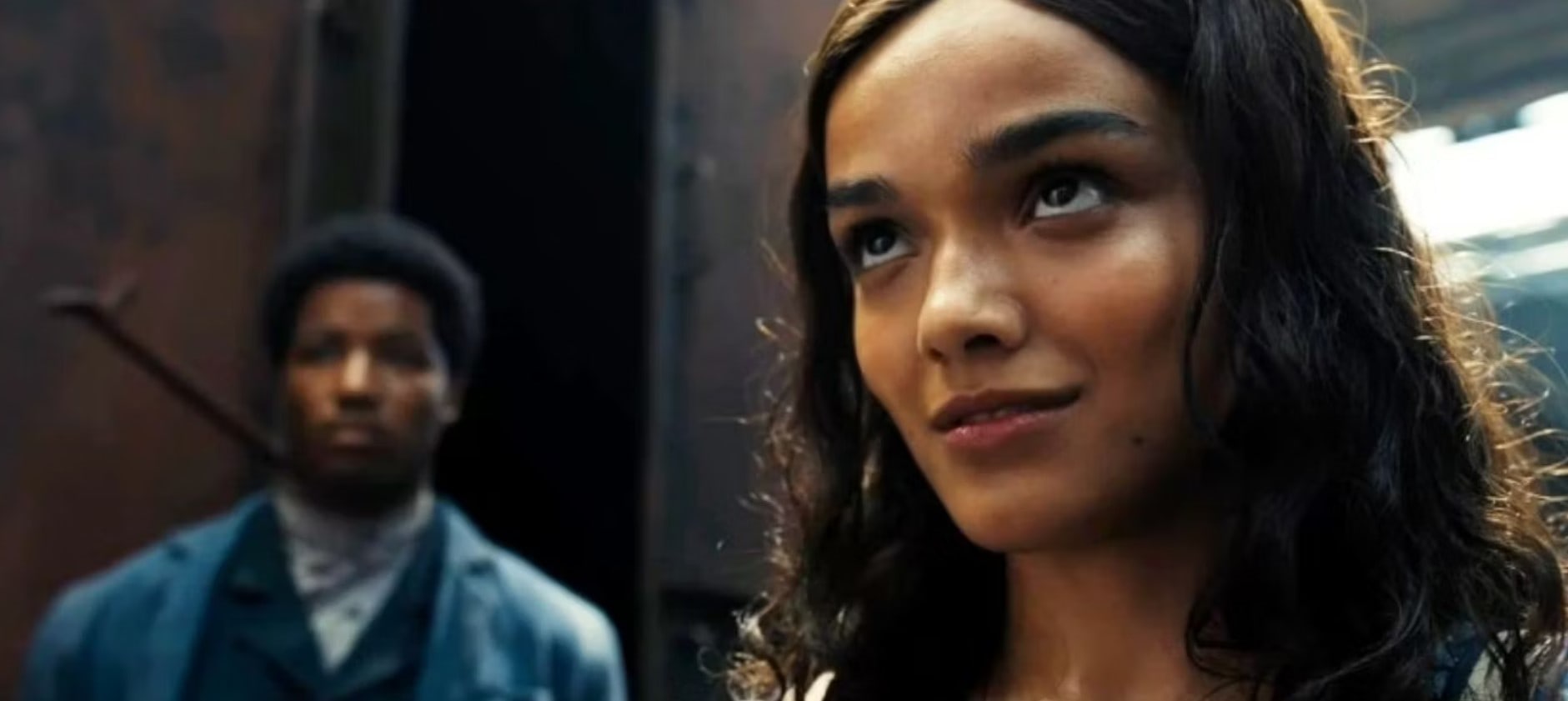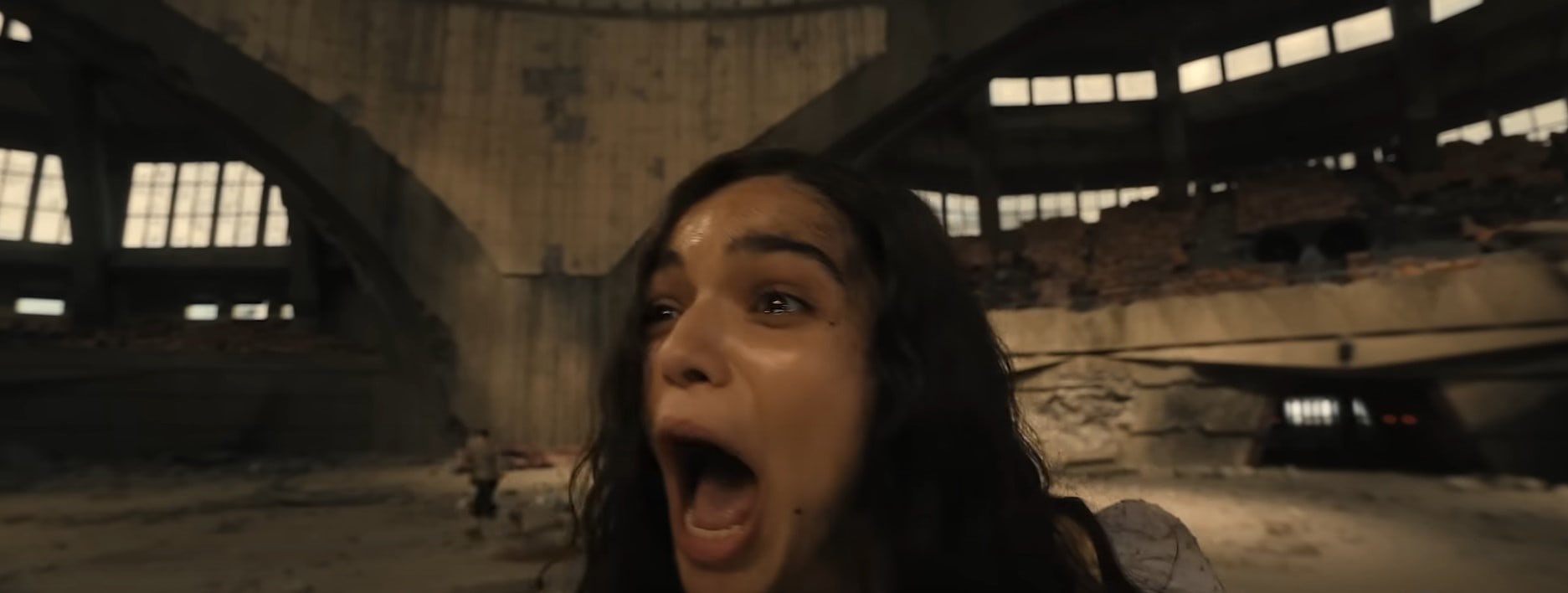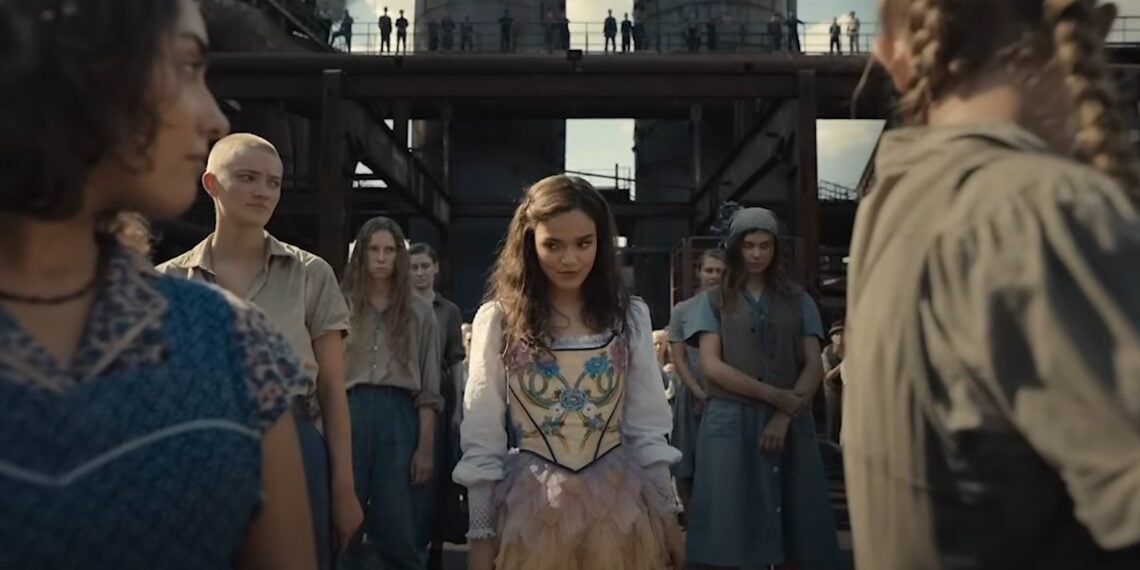One of the most intriguing mysteries in The Hunger Games: The Ballad of Songbirds and Snakes is the fate of Lucy Gray Baird. In the film adaptation of Suzanne Collins’ prequel novel, District 12’s female tribute, played by Rachel Zegler, plays an important role in the evolution of a young Coriolanus Snow (Tom Blyth).
After surviving the Capitol’s games, the gifted vocalist and overall champion of the 10th Hunger Games is free to live her life with the Coveys once more. The final acts of Snow, however, call into question the apparently fulfilled and joyful life she should be able to live.
The preceding story chronicles the story of the girl alluded to as District 12’s very first victor in the very first Hunger Games trilogy, though she wasn’t known by name at the time. The reason for this was because of Lucy Gray and the 10th Hunger Games being wiped from history following their conclusion.
By the end of The Hunger Games: The Ballad of Songbirds & Snakes, the audience and characters around the world are left wondering what happened to Lucy Gray Baird. In this regard, the film stays fairly close to the source material, but this fails to render the answer any clearer.

Why Did Lucy Leave Snow?
The outcome of Lucy Gray in The Ballad of Songbirds & Snakes is purposefully left ambiguous, allowing viewers to interpret what they believe happened. This occurs as a consequence of Lucy trying to leave the Districts with Snow during a rainstorm, but she discovers that he is to blame for the death of Sejanus Plinth during their journey.
When Snow discovers the guns that could lead to his previous crimes, he decides that he can destroy them and eventually return to the wonderful life in the Capitol without these unfinished businesses, only for Lucy to make him think that she could be one.
This leads to a forest encounter in which Coriolanus Snow kills Lucy Gray after being bitten by a snake. The Ballad of Songbirds and Snakes depicts Lucy falling and yelling after Snow fires in her way, but her body is not discovered when Snow arrives at her presumed location. Even traces of her in dirt eventually vanish, leaving Snow perplexed as to what has happened to her.
Snow then senses Lucy Gray humming “The Hanging Tree,” but it’s unclear whether she was intentionally singing the song at first or if it was the result of nearby Jabberjays.
The Ballad of Songbirds and Snakes does not definitively answer the issue about whether Lucy Gray dies. Casca Highbottom admits to Snow during their final meeting that his sources have told him Lucy has “disappeared,” leading to the assumption that District 12’s mayor murdered her after his daughter died.
Lucy Gray’s ambiguous ending corresponds to the lines of her tune regarding herself and how she responds to Snow’s questions about her life. Lucy mentions that she is a “survivor,” but adds that “it’s a mystery” whether she exists in the song. The prequel to The Hunger Games follows suit.

Why Can’t We Know What Happened To Lucy?
The decision to leave Lucy’s fate ambiguous in The Ballad of Songbirds & Snakes is made to match the book. Rather than seizing the opportunity to explain what took place to her and possibly build up The Hunger Games: The Ballad of Songbirds & Snakes 2’s narrative, the film prioritized staying true to the source material.
The film could have easily provided an adequate response based on Suzanne Collins’ knowledge of whether Lucy will appear in any future books. However, doing so would have deprived The Ballad of Songbirds and Snakes of a conclusion that leaves Snow in doubt about what happened.
Lucy Gray Baird may have lived in the woods for the remainder of her life because she was skilled at the Hunger Games. As a District 12 member, she’s a survivalist herself, and she was probably prepared to flee after she heard Snow firing wildly in the forest.
Another probable option is that she fled to District 13, which would still be present. There’s also the possibility that one of Snow’s bullets struck Lucy, killing her in the woods, which implies that she and Snow’s dad died in a manner comparable to that.




